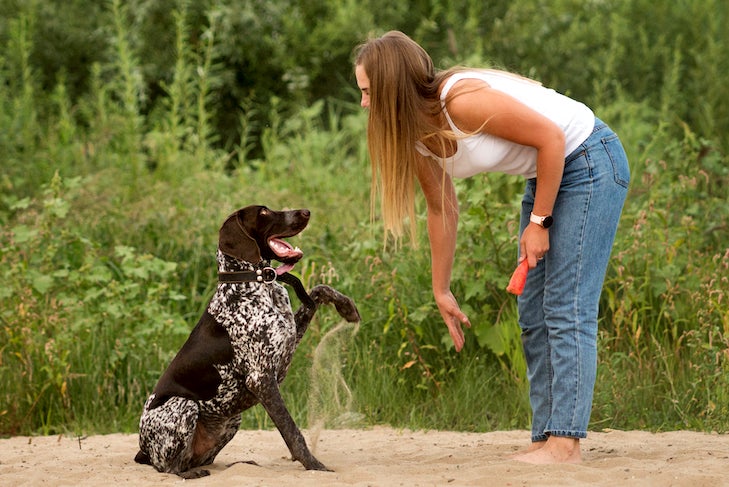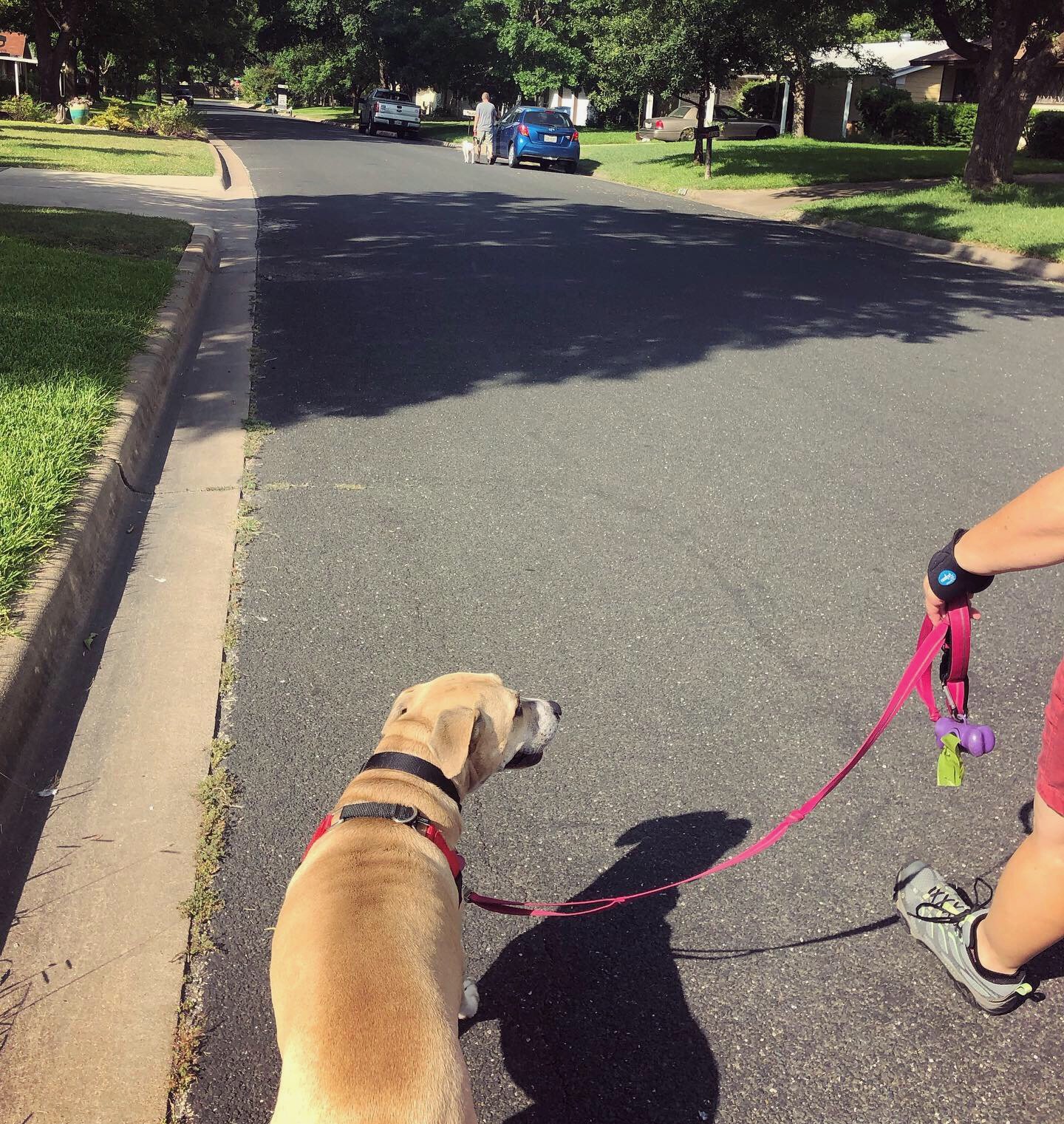Dog Training Charlotte NC: Your Course to a Well-Behaved Dog
Dog Training Charlotte NC: Your Course to a Well-Behaved Dog
Blog Article
Unlock Your Pet dog's Prospective: Proven Canine Training Approaches for Success
Efficient pet dog training is a nuanced process that hinges on recognizing canine actions and employing clinically backed techniques. dog training near me. By incorporating positive support, developing clear commands, and prioritizing socialization, pet owners can cultivate a productive connection with their pet dogs. Obstacles commonly develop that need tailored options and an individual strategy. Checking out these confirmed techniques exposes not just the possibility for behavioral enhancement but also the much deeper bond that can be developed in between owner and pet dog. What crucial approaches must be thought about to really unlock your canine's potential?
Recognizing Dog Behavior
Recognizing pet dog habits is essential for reliable training and promoting a positive partnership between dogs and their owners. An extensive grasp of canine body movement, vocalizations, and social communications is essential for recognizing their requirements and feelings. Canines connect mainly through non-verbal cues; as an example, a wagging tail might show exhilaration, while pinned ears can indicate concern or entry.

Additionally, environmental factors play a considerable role fit a dog's habits. Changes in routine, new surroundings, or the existence of strange individuals can result in tension or stress and anxiety in canines. Identifying these triggers enables owners to mitigate unfavorable responses and develop ideal training techniques.
Eventually, a deep understanding of canine behavior lays the structure for successful training techniques, improving both habits and the total bond in between the dog and its owner. Dog training. This understanding is important for promoting a well-adjusted, pleased canine buddy
Positive Support Strategies
Effective training counts greatly on positive support strategies, which have actually been shown to generate substantial lead to shaping desired habits in dogs. This technique involves compensating a canine for exhibiting particular habits, therefore increasing the chance that these actions will be duplicated. Incentives can take different forms, consisting of deals with, praise, playthings, or play, depending upon what motivates the private canine.

It is important to progressively eliminate incentives as the canine finds out the actions, transitioning to recurring support. This technique preserves the actions with time while preventing dependence on continuous benefits. By concentrating on positive reinforcement, instructors can grow a trusting partnership with their dogs, advertising a cooperative and healthy training environment that enhances overall obedience and performance.
Establishing Consistent Commands
An essential aspect of effective pet training is the facility of regular commands. Uniformity in commands is crucial for reliable interaction in between the pet and the instructor. When commands are consistent, dogs discover to link specific words with desired actions, which accelerates the training procedure and enhances understanding.
To establish constant commands, it is important that all member of the family make use of the same terminology and gestures. For example, if one individual additional resources makes use of "rest" while another states "take a seat," it can produce complication for the dog. Select clear, distinct words for commands and make sure everyone associated with the pet dog's training follows these choices.
Strengthen commands with regular technique, guaranteeing that the dog gets sufficient opportunities to react properly. When a pet effectively adheres to a command, immediate favorable support needs to follow.
Lastly, hold your horses. Establishing consistent commands takes some time and effort. With commitment and clearness, you will certainly help your dog establish a solid understanding of assumptions, eventually bring about a mannerly friend.
Socializing and Direct Exposure
Mingling a pet is necessary for cultivating a well-adjusted and positive buddy. This process entails subjecting your dog to a variety of atmospheres, people, and various other animals to develop their social skills and adaptability. Early socialization, ideally between the ages of 3 to fourteen weeks, is crucial, as it prepares for a canine's future habits.
During socialization, goal to give positive experiences in various settings, such as parks, hectic roads, and homes with various other animals. Present your pet dog Discover More to various stimulations, including noises, views, and smells, making sure that each encounter is rewarding. This exposure aids alleviate worry and anxiousness, leading the way for a much more resilient pet.
Involving in regulated group play sessions with various other pet dogs can also boost social skills, teaching your pet dog appropriate communications and limits. Focusing on socialization will significantly contribute to your pet dog's general happiness and behavior throughout their life.
Conquering Common Training Obstacles

Pets might battle to focus in active or unknown setups. Gradually desensitize your pet dog to diversions by starting training in a quiet setting and slowly introducing even more stimuli as they come to be efficient.
In addition, behavioral concerns like jumping or too much barking can become frustrating. Address these by educating different behaviors, such as sitting calmly when welcoming visitors. Consistency and perseverance are important; reinforce wanted actions continually and avoid scolding, which can bring about confusion.
Last but not least, acknowledge that each dog is unique, and training timelines might vary. Tailor your technique to your canine's specific requirements, and look for expert guidance if necessary. With determination and the appropriate techniques, getting rid of these challenges can cause a trained, satisfied canine companion.
Final Thought
In verdict, opening a pet dog's potential demands a comprehensive technique that includes an understanding of canine behavior, the application of favorable reinforcement methods, and the establishment of regular commands. Early socializing and direct exposure to varied settings even more boost a canine's adaptability and confidence. By addressing common training obstacles with hop over to here customized strategies and persistence, a harmonious and cooperative partnership in between pet and trainer can be cultivated, ultimately causing a well-behaved companion capable of flourishing in various situations.
Efficient pet dog training is a nuanced procedure that hinges on comprehending canine habits and using scientifically backed methods.Comprehending pet behavior is vital for efficient training and fostering a positive partnership in between pets and their owners.Reliable training counts greatly on favorable reinforcement strategies, which have been shown to produce substantial outcomes in forming wanted habits in canines. When commands are uniform, pets learn to associate details words with preferred actions, which increases the training procedure and enhances understanding.
In final thought, opening a dog's prospective requires a thorough strategy that includes an understanding of canine habits, the application of favorable support methods, and the facility of consistent commands.
Report this page